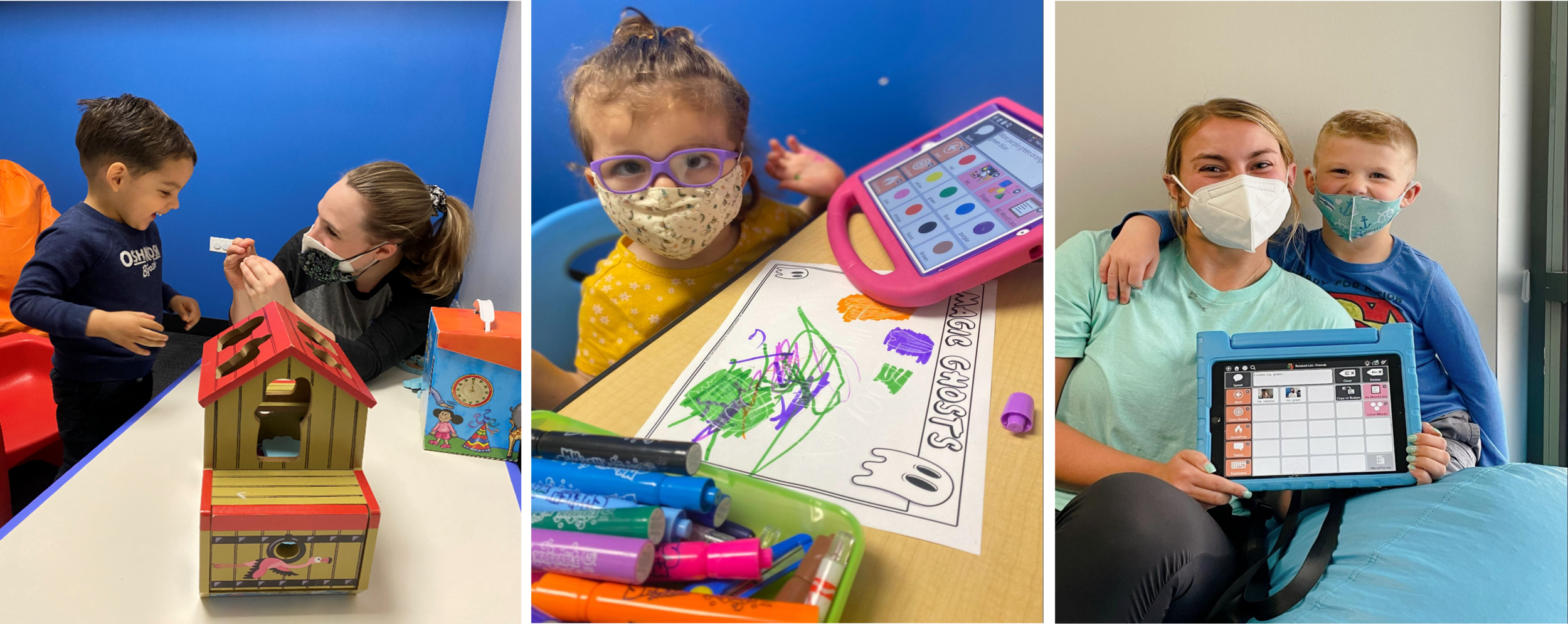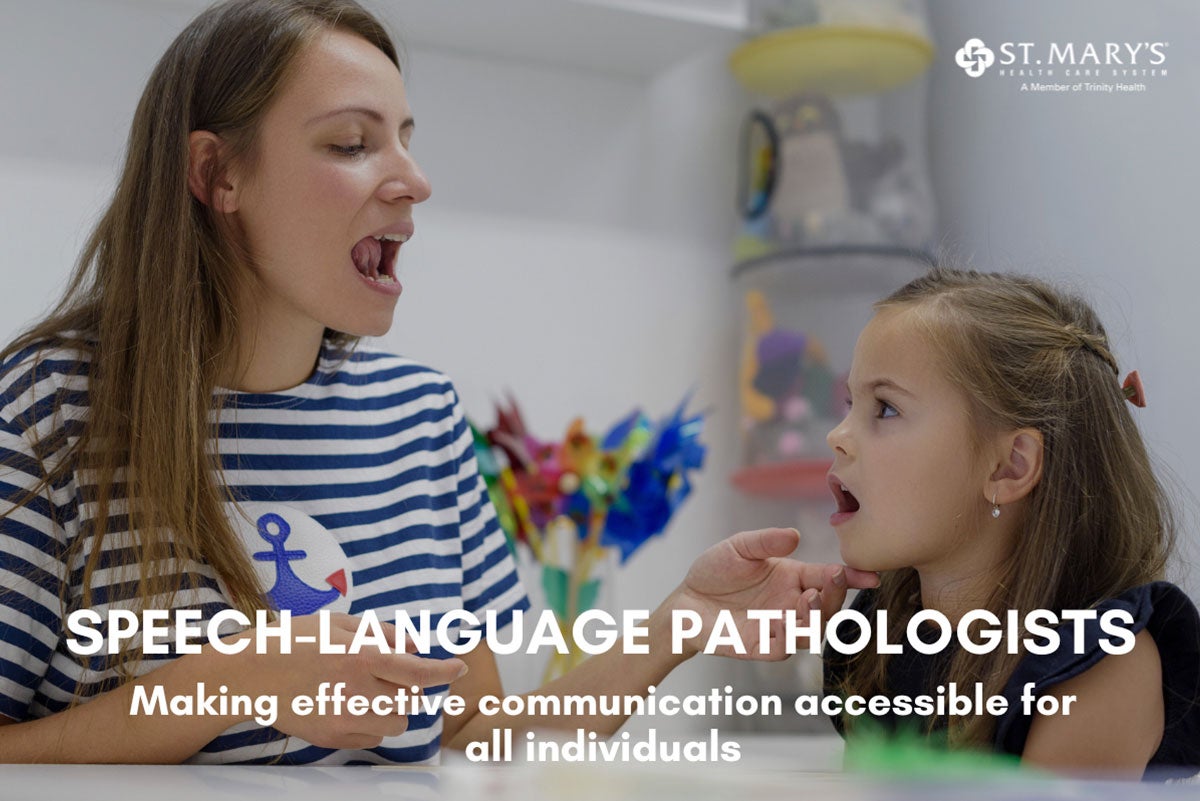Understanding How a Speech Pathologist Works with People of All Ages
Understanding How a Speech Pathologist Works with People of All Ages
Blog Article
How a Speech Pathologist Can Assist Improve Communication Skills
Reliable communication is a cornerstone of personal and specialist success, yet several individuals face obstacles that hinder their ability to share themselves clearly. A speech pathologist is equipped to deal with these barriers with targeted evaluation and treatment methods tailored to each individual's demands. By using evidence-based restorative strategies, they not only function to boost speech and language conditions but additionally boost total communicative capability. Comprehending the complex role of a speech pathologist exposes just how their proficiency can change lives, welcoming a closer evaluation of the specific approaches and outcomes associated with their practice.
Comprehending Communication Problems
Comprehending interaction problems is essential for identifying how they affect people' capacity to express themselves and engage with others. Communication disorders incorporate a variety of troubles that affect speech, language, and social communication, frequently preventing efficient interaction. These problems can develop from numerous aspects, including neurological problems, developing hold-ups, physical impairments, or emotional concerns.
Speech disorders might manifest as troubles in articulation, fluency, or voice production, impacting just how words are obvious or spoken. Language disorders, on the various other hand, entail challenges in understanding or making use of language, which can restrain both non-verbal and spoken interaction. Social communication disorders are defined by troubles in the pragmatic elements of interaction, such as taking turns in conversation or understanding social cues.
The consequences of interaction problems are extensive, impacting not only the person's capability to communicate emotions and ideas yet likewise their social partnerships, academic chances, and total quality of life. Recognition of these disorders can cultivate compassion and support, encouraging effective methods for interaction and engagement. Comprehending the complexities of interaction disorders is a crucial action in the direction of promoting inclusivity and addressing the requirements of those affected.
Role of a Speech Pathologist
Speech pathologists often play a crucial role in identifying and treating interaction conditions, employing a series of evidence-based strategies customized to each individual's demands. These specialists collaborate with people across the lifespan, from youngsters with speech hold-ups to grownups recuperating from strokes or distressing mind injuries. Their experience includes a range of interaction issues, including expression, language, fluency, and voice disorders.
In therapeutic setups, speech pathologists use organized treatments made to improve communication abilities. They might implement techniques such as speech exercises, language games, and social communication training to help with renovations in responsive and meaningful language capabilities. Speech Pathologist. Furthermore, they educate customers and their households about effective communication strategies and flexible approaches to navigate daily interactions
Beyond straight treatment, speech pathologists collaborate with various other medical care experts, educators, and caregivers to make sure a comprehensive method to therapy. They promote for customers by providing sources and support, allowing individuals to achieve their interaction objectives and enhance their total lifestyle. As specialists in the area, speech pathologists are vital in promoting reliable interaction, advertising freedom, and boosting social participation for those with interaction obstacles.
Analysis and Medical Diagnosis Process
The analysis and diagnosis procedure conducted by speech pathologists usually entails a comprehensive examination to identify communication disorders precisely. This process begins with a detailed medical history, where the clinician collects essential details concerning find out here now the person's medical, instructional, and developmental history. Recognizing the context of the individual's communication difficulties is crucial for a precise diagnosis.
Complying with the situation background, speech pathologists use casual assessments and standardized examinations to examine different elements of interaction, including speech noise production, language comprehension, meaningful language, linked here and social communication abilities. These assessments are tailored to the person's age and specific problems, supplying useful information for evaluation.
Observation is also an essential element of the analysis process, as it enables the clinician to see firsthand how the specific interacts in all-natural setups. In addition, meetings with relative and instructors can supply understanding into the individual's communication obstacles across different environments.
When the analysis is complete, the speech pathologist manufactures the findings to determine a diagnosis and suggest appropriate treatments. This complete assessment process makes certain that individuals get targeted support customized to their special communication demands, laying the structure for effective healing techniques.
Restorative Techniques and Approaches
Various therapeutic strategies and techniques are used by speech pathologists to resolve a selection of interaction conditions effectively. One extensively used approach is expression treatment, which concentrates on remedying speech appears with repeating and visual cues. This method is particularly beneficial for people with speech sound disorders.
An additional efficient technique is language treatment, which enhances both meaningful and responsive language skills. This may include interactive activities that advertise vocabulary growth, sentence framework understanding, and conversational skills. Additionally, speech pathologists typically utilize social abilities educating to improve pragmatic language abilities, enabling people to navigate social communications more successfully.
Fluency shaping and stuttering alteration strategies are specifically developed to aid those experiencing fluency problems. These methods assist clients develop smoother speech patterns and manage the physical and psychological parts of stuttering.
Furthermore, augmentative and alternate communication (AAC) systems are employed for individuals with severe interaction problems. These systems, which can consist of gestures, signs, or digital tools, give important assistance for efficient communication.
Advantages of Speech Therapy

Additionally, speech therapy can aid in establishing crucial listening and understanding abilities, fostering far better interaction in conversations. People with cognitive-communication problems can likewise benefit, as treatment concentrates on reinforcing memory and analytical capabilities, essential for reliable interaction.
An additional crucial facet is the psychological support supplied throughout therapy sessions. Speech check pathologists develop a risk-free environment, encouraging people to overcome stress and anxiety and irritation pertaining to their communication issues. This support can lead to boosted self-confidence and general mental health.
Moreover, early treatment with speech therapy can protect against further difficulties, guaranteeing that people reach their full communicative potential. Generally, the advantages of speech therapy expand beyond plain speech enhancement, positively influencing different measurements of life for those impacted by interaction problems.
Final Thought
In recap, speech pathologists play a vital role in attending to interaction disorders via assessment, diagnosis, and customized therapeutic treatments. By employing evidence-based techniques, these professionals improve individuals' speech and language abilities, cultivating enhanced quality, fluency, and social communication skills. The benefits of very early intervention underscore the relevance of looking for assistance from speech pathologists, as their knowledge can significantly improve communicative potential, inevitably bring about higher success in both expert and individual spheres.

Speech pathologists frequently play an important function in treating and detecting interaction conditions, employing a range of evidence-based strategies tailored to each person's demands. As specialists in the area, speech pathologists are vital in cultivating efficient interaction, advertising independence, and boosting social engagement for those with communication obstacles.

Report this page